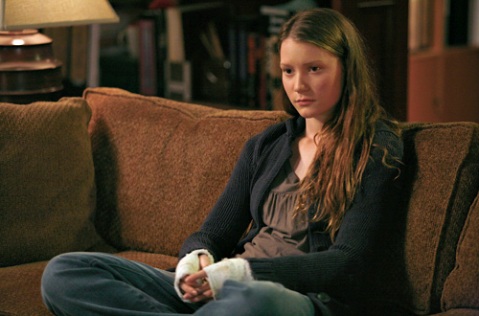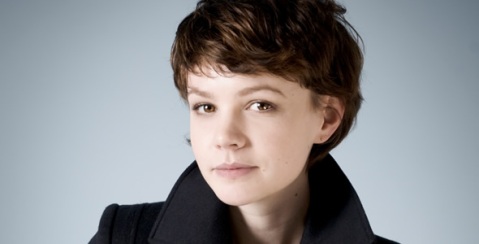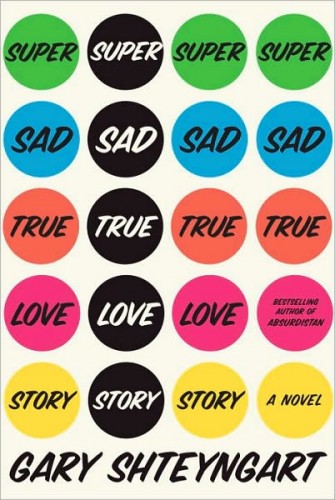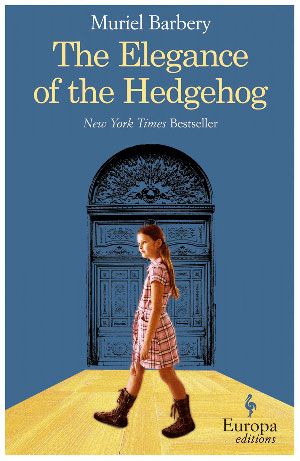Directing all my rage at Slate’s logrolling of “The End of Men”
19 September 2012
I’m having one of those weeks. I’ll spare you the details, except that I somehow managed to orchestrate a perfect storm of incoming papers from students, crazy bad news about tenure decisions for important friends, and a long delay in getting reimbursed by my university for moving expenses.
In response, I’d like to direct my rage at Slate.com. Why does this online journal feel it necessary to play such a major role in logrolling the new book, The End of Men, by its own editor-writer Hanna Rosin? Does it feel no conflict of interest considering that Rosin’s husband is the journal’s senior editor, David Plotz? Does this journal, owned by the Washington Post, have no journalistic credentials to uphold?
Here’s how it looks for the past 6 days:
- Friday, Sept. 14: Alyssa Rosenberg (why, Alyssa?) writes “The End of Men, Fall TV Edition.”
- Friday, Sept. 14: Rosin’s friend Emily Bazelon writes “Why Feminists Fear The End of Men,” an angry retort to a highly critical review of the book in the NY Times Book Review by historian Katherine Homans. (That’s right: let’s blame feminists, which is Slate’s bread and butter.)
- Tuesday, Sept. 18: Rosin posts three separate pieces entitled, “What Happens When the Wife Earns More?” drawn from the book.
- Wednesday, Sept. 19: Rosin appears on the Slate podcast, “The Slate Culture Gabfest,” to discuss the book with colleagues who, although ordinarily quite dependably intelligent and critical, refuse to ask hard questions.
- Wednesday, Sept. 19: June Thomas writes “The End of Men, TV Titles Edition.”
That’s right: 6 days, 7 articles. (Two of which appeared before noon today.) If only the rest of us who write books had the ability to transform one’s professional journalistic job into an in-house publicity machine.
Let’s not even mention the many other times Rosin has received logrolling attention from its staff for the same material in the past, including plugs by her husband on the podcast “The Slate Political Gabfest,” plugs for her public talks including a TED talk, plugs for her original and controversial Atlantic Magazine article that earned her the book contract, and on and on.
I can barely stand to read her arguments, which all too often take some kind of anecdote — the story of a couple in Alabama who have seen the husband’s income decline as the wife’s grows — and then extrapolates this as some kind of world-historical shift. Even worse, she cherry-picks hard evidence such as employment figures and ignores other evidence in order to hammer it into the shape of her overall argument. And worst of all, her title: The End of Men, as reviewer Homans puts it, is not a title but a sound bite utterly misleading about her argument.
After spewing all my righteous bile about Slate’s failure to act professionally with regard to one of its own editor/ writers, perhaps I should add one tiny note of relief: at least Rosin is engaging in political-cultural criticism, unlike Monday’s article about how hard it is for women with small waists and big breasts to find a bra. Seriously. Slate: the online journal equivalent of listening to teenage girls’ conversation at the mall. Kill me now.
No equity for Title IX women’s sports
30 April 2011
Why should we care that colleges have found ways of shirking Title IX rules that seek to create greater equity for women in college sports, as reported in last week’s New York Times? Because those rules never demanded true equity to begin with. Everyone needs to stop acting as if colleges have been under some crazy burden to give women 50% of all resources. Title IX was never intended to deliver exact parity. To offer an analogy: it’s as if the federal government passes an equal pay act and 50 years later women are still only getting paid 77% of what men make, only to have men argue women are getting paid too much and stealing resources away from men. (Hey, wait a second…that’s pretty much true, too!)
 First, a few truths about Title IX: this law does not demand exact equality between men’s and women’s sports. Rather, colleges can comply with it in one of three ways:
First, a few truths about Title IX: this law does not demand exact equality between men’s and women’s sports. Rather, colleges can comply with it in one of three ways:
- by showing that the number of female athletes is in proportion to overall female enrollment
- by demonstrating a history of expanding opportunities for women
- by proving that they are meeting the athletic interests and abilities of their female students
Considering that women make up 57% of college student populations nationwide, it’s obvious that colleges are not complying via path #1. I know of no school that gives female students a majority of funds and resources. Instead, according to the best statistics I can find:
- Division I institutions: women make up 53% of college student bodies but only 46% of athletes
- Universities overall: women make up 57% of college student bodies but only 42% of athletes
- Female college athletes receive 42% of athletic scholarship money
-
College women’s sports receive 36% of sports operating funds
-
Women’s teams receive 32% of recruiting funds
Again, all of this is legal so long as colleges show that they are doing their best to increase athletic opportunities for women or are otherwise meeting the athletic interests and abilities of female students. There is no equality for women’s college sports. Men’s sports still get the vast majority of university funds. And this does not count the vast amounts of booster funds that come in to support specific sports, creating vastly disproportional funds going to football and basketball. (How else do you think top-shelf football coaches can get paid $5 million per year?)
Title IX has been fought from the outset. The NCAA went to court in the 70s fighting to be excluded from the law but was denied a victory. Instead, many colleges simply disregarded the rules since there was no governmental regulation or punishment for noncompliance until 1992, when a Supreme Court case determined that individuals could receive monetary damages in court. In 2003 and 2004, a public battle took place again over Title IX, resulting in the Bush Administration opting to soften the rules even further. The Obama Administration quietly reversed that decision in 2010, returning Title IX to previous rules and seeking more enforcement of the law. But now it seems colleges are at it again, giving college women’s sports short shrift.
 Here’s a quick rundown of the story (with quotes) from the NY Times: colleges have found ingenious ways of flouting the rules. Some schools count male athletes as women: 15 of the 34 players on Cornell’s women’s fencing team are men, while “Texas A&M, which just won the women’s Division I basketball championship, reported 32 players in the 2009-10 academic year, although 14 were men.” Or schools populate women’s teams with ghost players, as at the University of South Florida, where only 28 of the 71 women on the cross-country roster ran a race in 2009. “Asked about it, a few laughed and said they did not know they were on the team.” Still other schools engage in voodoo math: Quinnipiac University was found guilty last year of “requiring that women cross-country runners join the indoor and outdoor track teams so they could be counted three times,” according to the Times‘ story, and guilty too of adding names to a roster in time for the count but cutting those players a few weeks later.
Here’s a quick rundown of the story (with quotes) from the NY Times: colleges have found ingenious ways of flouting the rules. Some schools count male athletes as women: 15 of the 34 players on Cornell’s women’s fencing team are men, while “Texas A&M, which just won the women’s Division I basketball championship, reported 32 players in the 2009-10 academic year, although 14 were men.” Or schools populate women’s teams with ghost players, as at the University of South Florida, where only 28 of the 71 women on the cross-country roster ran a race in 2009. “Asked about it, a few laughed and said they did not know they were on the team.” Still other schools engage in voodoo math: Quinnipiac University was found guilty last year of “requiring that women cross-country runners join the indoor and outdoor track teams so they could be counted three times,” according to the Times‘ story, and guilty too of adding names to a roster in time for the count but cutting those players a few weeks later.
Are colleges engaging in this duplicity because they can’t find women interested in participating in sports? No: they do it because they must submit annual reports listing the total numbers of women and men in athletics, and whereas it costs money to start a new team that women might want to sign up for, it costs a college nothing to add names, however fraudulently, to existing teams (honestly, 71 cross-country runners?). No one has shown that college women don’t want to engage in organized sports.
Nor should we confuse the question of whether a sport earns a profit in ticket sales with its value to the university. I understand the impulse to celebrate football teams that earn money for their universities, but not only is this relatively rare, but most men’s teams are as equally unprofitable as most women’s teams. Besides, as I’ve already mentioned, much of that income goes back into the coffers of profitable teams; it’s not distributed widely.
sport earns a profit in ticket sales with its value to the university. I understand the impulse to celebrate football teams that earn money for their universities, but not only is this relatively rare, but most men’s teams are as equally unprofitable as most women’s teams. Besides, as I’ve already mentioned, much of that income goes back into the coffers of profitable teams; it’s not distributed widely.
These facts make it all the more aggravating when journalists on the ever-reactionary, often anti-feminist Double X podcast (you guessed it, Hanna Rosin again!) last week offered this slew of false information and misinformed commentary on the issue. Rosin is introduced by her colleague Jessica Grose by saying, “So, Hanna, you have done tons of research on this topic. Can you tell us a little bit more about college women’s sport and Title IX more generally?”
Rosin: “Yes. I did not have the expected response to this article. You’re supposed to have the expected reaction of, just, you know, isn’t this is terrible, how could they be fudging the numbers, they’re giving it to the boys once again. But I raise my hand in exasperation and, just had the words Title IX reform! It’s time for Title IX reform! This is a law that was passed in the 70s that really doesn’t seem to any more reflect the reality of American colleges and there’s so much shenanigans they have to go through in order to comply with this law that it seems like we need to rewrite the law. Now that’s not to give credit – not to take away credit from all the amazing things that Title IX has done in terms of making it possible for women to be competitive and aggressive and participate in sports the way they never have been. But, like, if you’re padding the running team with people who have never run a race in their lives, like, what does that mean? You should force the women to run the race? I just, I just don’t know a way around this except to say, you know, ease up on the proportionality a little bit! It doesn’t have to absolutely be exact. Like, isn’t there a way to rewrite the law in which it’s not exact? So am I being, like, a crazy anti-feminist [unintelligible] here?”
Well, yes, Hanna, you may be a crazy anti-feminist, but mostly you’re a bad journalist who offers up false information about the subject you’re discussing. I’m not a journalist, but was able to find this information and statistics using reliable sources online in a single morning. Next time you use your journalist credentials to spout off — especially after being introduced as having “done tons of research on this topic” — do just a tiny amount of research ahead of time.
Julian Assange, rape, and feminism
17 December 2010
I don’t know whether Julian Assange is guilty of rape — no one does. I do know, from Jessica Valenti’s piece in the Washington Post, that all those crazy descriptions of the Swedish charges against him are untrue (there is no “sex by surprise” law in Sweden, nor is Assange accused of suffering a broken condom). I fully believe that the case should be heard to determine whether he is guilty. What I don’t understand — and what alarms me to no end — is the eagerness on the part of many to disbelieve all charges of rape levied against Assange in particular and powerful men in general, and to attribute those charges instead to ulterior motives. In Assange’s case, obviously, commentators have suggested this is a cloaked attempt to dismantle WikiLeaks; in other cases, rape charges have been dismissed as mere vindictiveness by angry women. During yesterday’s Slate/Double X Gabfest podcast discussion of the charges against Assange, not only did those “journalists” peddle in long-disproven rumors about “sex by suprise” et als, but they never once took it seriously that Assange might not be innocent.
Again, I repeat: I make no assumptions about Assange’s innocence or guilt; my concern is less with his case in particular than with the pattern. When powerful men are accused of rape, those charges are pooh-poohed by members of the public — and this happens a lot. Just google “athlete accused of rape” and take a look at reader comments on those stories, and you’ll get a chill. Nor is the pooh-poohing limited to dudes. Naomi Wolf wrote an unfunny yet purportedly humorous piece for the Huffington Post about the Assange case — a story so objectionable that Bitch Magazine pronounced her their Total Douchebag of the week. And then, of course, there are the Slate women — Emily Bazelon, Hanna Rosin, and Margaret Talbot — who actually went so far as to write off the women as confused, paranoiac Assange groupies who felt some kind of vague post-consensual-sex resentment and then saw their stories snowball into international drama. I’m not kidding. Laughing about the “sex by surprise” account, Talbot joked, “That sounds kind of pleasant,” while Bazelon — ordinarily a highly informed expert in the law — first offered the bafflingly unenlightened observation that “I think one of the reason this story’s so titillating is that there’s no real way to know what went on” (Emily, have you never heard the details of a rape case before?) and then suggested that she saw two possible interpretations of the case: either they are “avenging radical feminist devils, basically, who are out to get Julian Assange,” or, more likely (according to her):
[I think] this kind of weird thing happened where all these people are kind of paranoid, right — they all, if you hang out with Julian Assange then you must have some streak of suspicion and anti-authority-ness in you. And so these women, you know, had what seemed like, you know, just, like, sex with Julian Assange, they were hanging out with him the next day in both cases I think. But then they got mad at him because he disappeared on them and somehow in the conspiracy-laden world they live in they decided they had to track him down, and that then they had to go to the police to do that, and then things kind of spun from there.
A quick enumerated response:
- Really?
- How much do you get paid to spout off on the Double X Gabfest podcast?
- Considering that Slate is a Washington Post affiliate, what is their excuse for not having read Valenti’s Post story of a week ago — at least to get their facts straight?
- Why do I still listen to this piffle? (Answer: it’s like picking at a scab. And it gets sent automatically to my iTunes with the wonderful Slate Culture Gabfest podcasts.)
This is not to say there hasn’t been an American feminist response to the story. Jill Filipovic of Feministe had the tidiest statement yet asserting that we can take rape charges seriously at the same time that we can also see ramped-up international interest in the story being linked to the WikiLeaks controversy. And the women at Tiger Beatdown are bound and determined to bring attention to those major media figures of the left, like Michael Moore and Keith Olberman, who have pooh-poohed the rape tale.
I keep insisting on neutrality about Assange’s guilt or innocence because I’ve become overly invested in other rape cases in the past, and had my heart broken at the results. It’s a tragedy of our current political culture here in the U. S. that so many charges of rape have been stunningly and overwhelmingly proved to be false. A tragedy for three reasons: first, that such incidents contribute to the generalized skepticism I’ve already described, which hinder other women from using the law; second, that these women latch onto the charge of rape — a serious criminal offense — because they do not have other legal or cultural means of redressing lesser wrongs; and finally, a tragedy for the specific women who are so spectacularly discredited in public. I’m thinking here in part, of course, of the woman who charged members of the Duke lacrosse team of rape in 2006; but that’s only the most vivid of many such cases in recent memory. Thus, I know perfectly well that some women initiate charges of rape which are later proved to be false or exaggerated.
But in the meantime as Assange sits through house arrest while the charges are worked out, let’s get the facts straight, refrain from pre-judging the case, and — for heaven’s sake — stop giving powerful men the benefit of a culture that doesn’t take rape seriously. Beware of doing otherwise, for the future looms before us.
Slate doesn’t know what “feminism” means
11 June 2010
You’d think they would, considering how much they talk about it. “Is Nikki Haley a Feminist?” asks one headline. “Is the Tea Party a Feminist Movement?” asks another. “Sex Addiction is a Feminist Victory” announces a third. All of these articles are written by Hanna Rosin, one of the co-founders of Double X (the site’s terrible women’s blog, about which I’ve complained before) and a contributing editor for the Atlantic monthly. In asking such preposterous questions — and, by the way, failing to answer them — Rosin denudes the word feminism of all meaning and contributes to the erasure of the political need for the equality of the sexes, which itself is anti-feminist behavior. She’s not alone at Slate; Amanda Marcotte’s essay claims that Sarah Palin’s version of feminism has us all asking “anxious questions”:
Does the word feminism mean anything at all? Does merely wearing a power suit and smart-girl glasses automatically make you a feminist?
THESE ARE STUPID QUESTIONS that good journalists would not ask. Feminism means a belief in the social, political, and economic equality of the sexes, and it denotes the movement to achieve that equality. It’s in the dictionary. But in Rosin’s hands, “feminist” seems to mean “woman,” and possibly a vague kind of “pro-woman” perspective. Sometimes it means “a woman who has some degree of power.” Or, “powerful woman who complains that she has received criticism” (this is how Palin and Haley count as feminists). None of her essays treat a woman or group expressing any interest whatsoever in the equality of the sexes. None of her essays discuss even the possibility the public rise of such virulent anti-feminists might indirectly result in the equality of the sexes. Marcotte comes up with the tortured term “feminist anti-feminist” to describe women like Palin:
She’s just the latest incarnation of a long and noble line of feminist anti-feminists: women who call themselves feminist but also object to the existence of the feminist movement and organize in opposition to it.
I’m sorry, but doesn’t that make them ignorant anti-feminists?
Which begs the question, are Rosin and Marcotte ignorant too? I believe it’s far worse than that: I think they’re canny journalists who get paid a lot to cover the gender dynamics of anti-feminist right-wing women. When they play the provocateur by asking such offensive questions as “Is Sarah Palin a feminist?” they get a lot of responses, which translates to more attention from their publisher, which translates to more advertising revenue.
They’re canny, but they’re also doing anti-feminist work for the devil. If journalists act as if the term is so confusing, the vital importance of fighting for equal rights is eaten away. No one took it seriously when Palin claimed she had foreign policy experience because Alaska is next to Russia; why should we take it seriously when she claims to be a feminist? It is journalists’ job to be skeptical, not to denude language and politics of meaning. Rosin likewise enjoys asking the provocative question, “Who owns feminism?” ask if us selfish feminists have encircled it with velvet ropes. If the KKK announced itself to be an “anti-racist” organization despite all evidence to the contrary, would Rosin ask “Who owns anti-racism?” By publishing such frequent pieces, Slate contributes to an anti-feminism in American culture more generally.
Of course journalists should think seriously about the gendered implications of so many women in right-wing politics. Of course they should ask such questions as whether such women might alter our society’s views of powerful women. Just don’t throw around the word “feminism” as if it has no independent meaning.
P. S. At first I planned to respond to Rosin’s most recent Atlantic piece, “The End of Men,” in which she visits a community college, notes that there are more female students than male students, and extrapolates that the end of the world is nigh for men. But then I read the long list of crazy online responses to it and became too demoralized. Please read it yourselves and email me with intelligent thoughts.






 I’ve plunged myself into Muriel Barbery’s wonderful novel, The Elegance of the Hedgehog, which moves back and forth between the interior monologues of two brilliant women: the autodidact Renée, who hides behind her mask as an unkempt, sullen concierge in an elegant Paris apartment building; and Paloma, the precociously intelligent 12-year-old who lives upstairs and despises the pretentions of her family, teachers, and classmates. They seem to be on a path to discover one another — but I’m at the point in the novel when I’m so enjoying just listening to them think out loud that I’m not sure I care whether the narrative goes anywhere (Paloma has a diatribe about why grammar is about accessing the beauty of language that’s so wonderful I’m thinking of plagiarizing it for use in my classes).
I’ve plunged myself into Muriel Barbery’s wonderful novel, The Elegance of the Hedgehog, which moves back and forth between the interior monologues of two brilliant women: the autodidact Renée, who hides behind her mask as an unkempt, sullen concierge in an elegant Paris apartment building; and Paloma, the precociously intelligent 12-year-old who lives upstairs and despises the pretentions of her family, teachers, and classmates. They seem to be on a path to discover one another — but I’m at the point in the novel when I’m so enjoying just listening to them think out loud that I’m not sure I care whether the narrative goes anywhere (Paloma has a diatribe about why grammar is about accessing the beauty of language that’s so wonderful I’m thinking of plagiarizing it for use in my classes).



